Community - a dish best served collaboratively
A presentation at Flyless Dev Weekly by Jeremy Meiss

Community - a dish best served collaboratively

2 Image by Elias Sch. from Pixabay
Community is hard. There. I said it. That’s the presentation. Thanks for having me. I’m Jeremy Meiss, you can find me on the Twitters at @IAmJerdog. Now I’m opening it up for Q&A.

3 Image by StockSnap from Pixabay
Seriously though, building developer communities is hard work. It’s long hours of looking at stats, metrics, and worrying about if what you’re building is sustainable or, heck, interesting enough.

4 Image by civilservicelocal from Pixabay
It’s putting yourself out there in every interaction, from social media to blog posts to community threads and answers to meetup and conference talks. It’s playing the long game of community growth and member lifecycle, which can take years off of your mental stability. (You should have known me before I started doing developer community work!)

5 Hello! I am Jeremy Meiss Director, DevRel & Community @ CircleCI @IAmJerdog timeline.jerdog.me

6
So I’ve mentioned how much hard work that building communities is. With that acknowledgement, why would you ever make it that much harder on yourself by building your community in a bubble? Why position yourself on an island, staring at Wilson?

7 Background vector created by rawpixel.com - www.freepik.com
Building developer communities requires you to function much like the very developers you’re building your community for. Developers exist in interconnected communities due to the particular software or technology they might develop with/for, their hobbies, etc. Let’s look at a few examples of this

8

9 And I assume everyone’s seen the CNCF landscape, right?

10 Because of landscape’s like this, it makes sense to grow a community, especially when starting from scratch, by collaborating with others.

11 Photo by Richard Payette on Unsplash
Story time….

12 Reasons to collaborate Or… Why you should play well with others
I’ve put together some reasons why collaboration is a good thing for you and your community, company, etc.

14 Photo by RF._.studio from Pexels Problem solving (and learning) is better together

15 Photo by Hannah Busing on Unsplash Brings people (and companies) together

16 Image by Arek Socha from Pixabay New opportunities

17 Image by cocoparisienne from Pixabay Keep your community members around

18 Photo by Karsten Würth on Unsplash More efficient

19 Ways to start Collaborating

Photo by You X Ventures on Unsplash This collaboration starts by first taking stock of the developers in your community and the tech they’re using, along with the core tech your company might be using to deliver your product or service, etc.
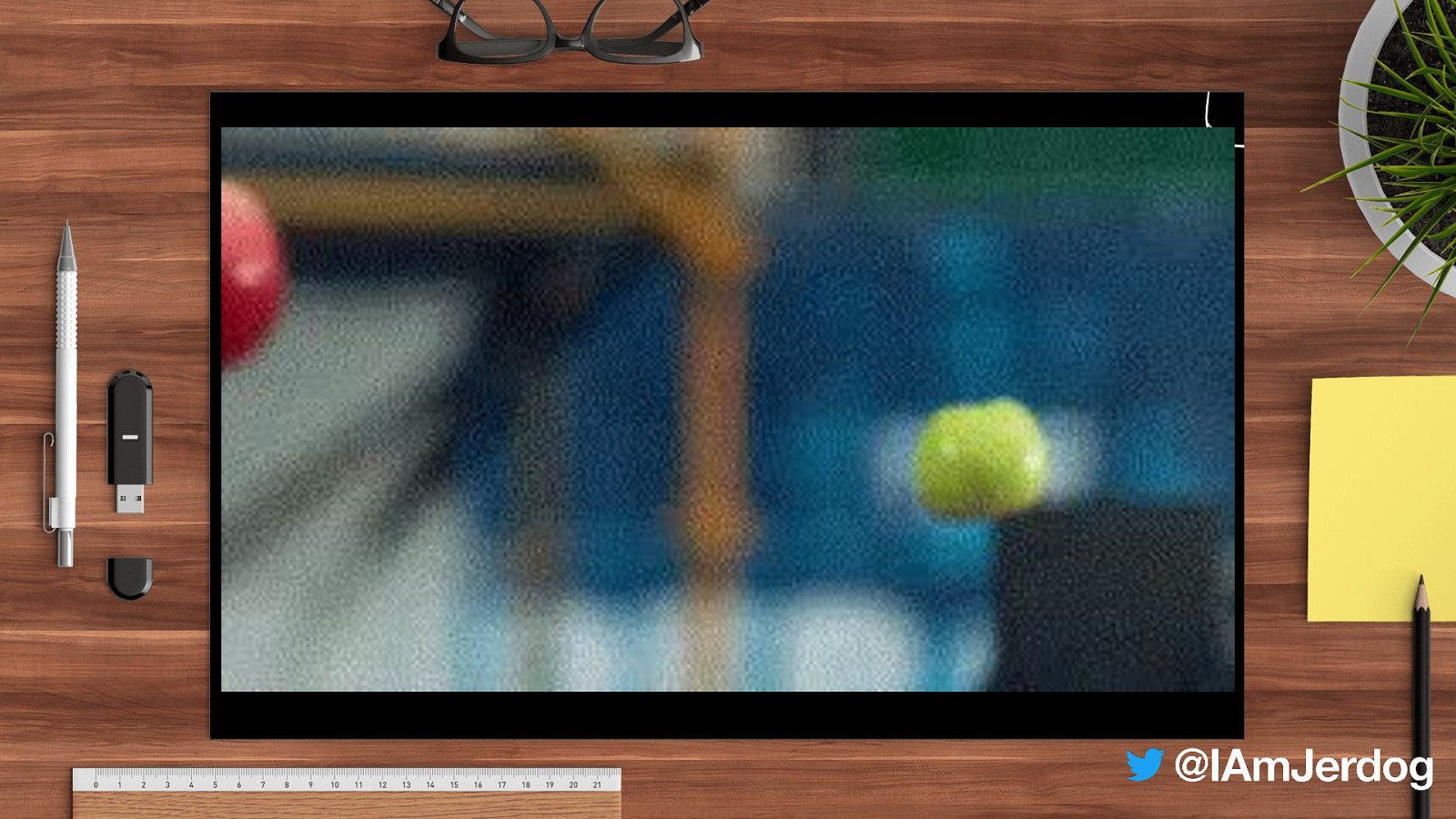
Once you’ve identified the different tech that’s in use by your company and those who do/would use your product… Make the different tech and communities collide, for lack of a better term. Get involved.
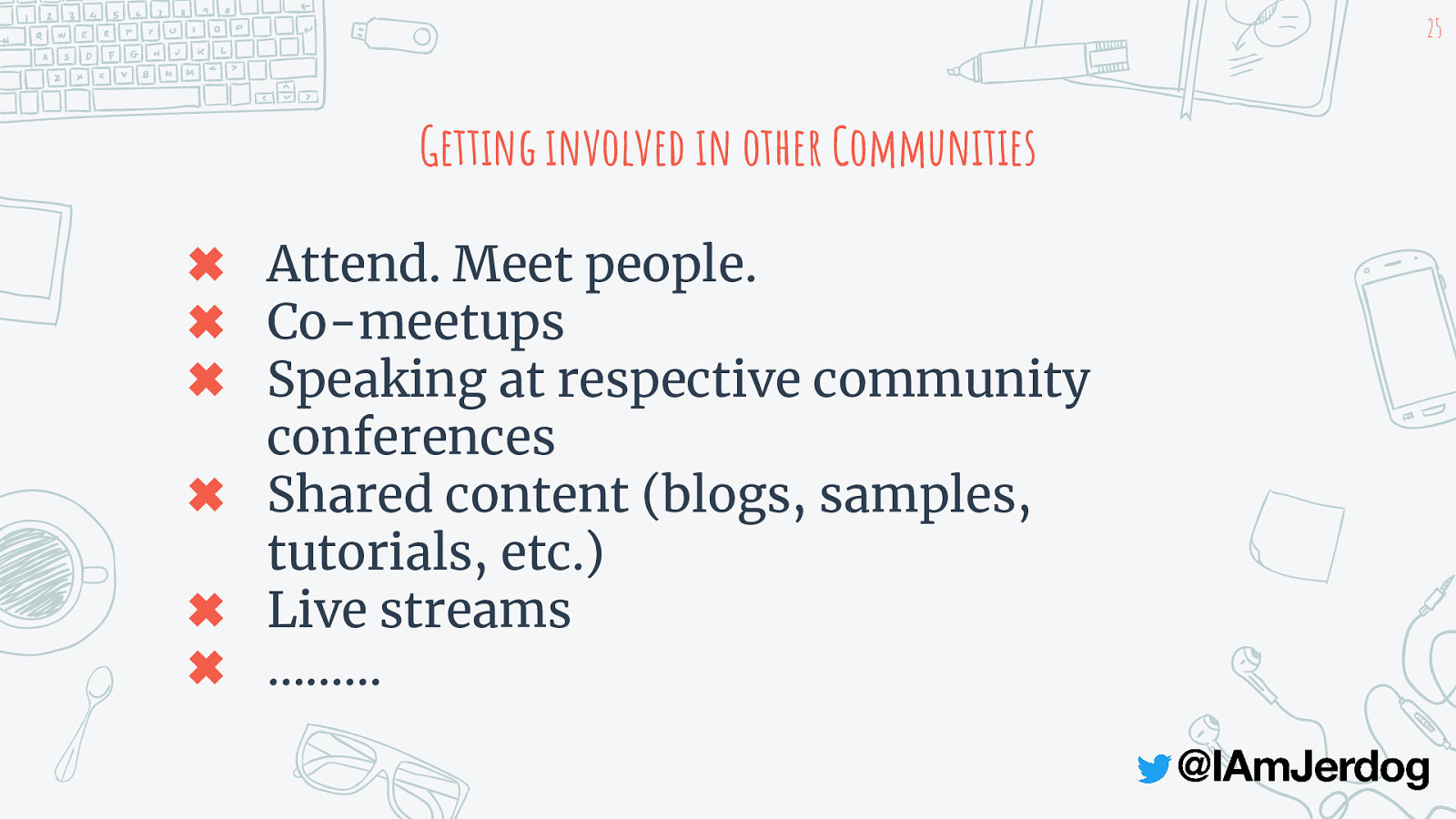
25 Getting involved in other Communities ✖ Attend. Meet people. ✖ Co-meetups ✖ Speaking at respective community conferences ✖ Shared content (blogs, samples, tutorials, etc.) ✖ Live streams ✖ ………

Photo by Michael on Unsplash Doing these things raises awareness of your brand, but it also:
Shows those in both communities how your tech is not on an island, and works with many different things they might already have in play in their specific environment(s)
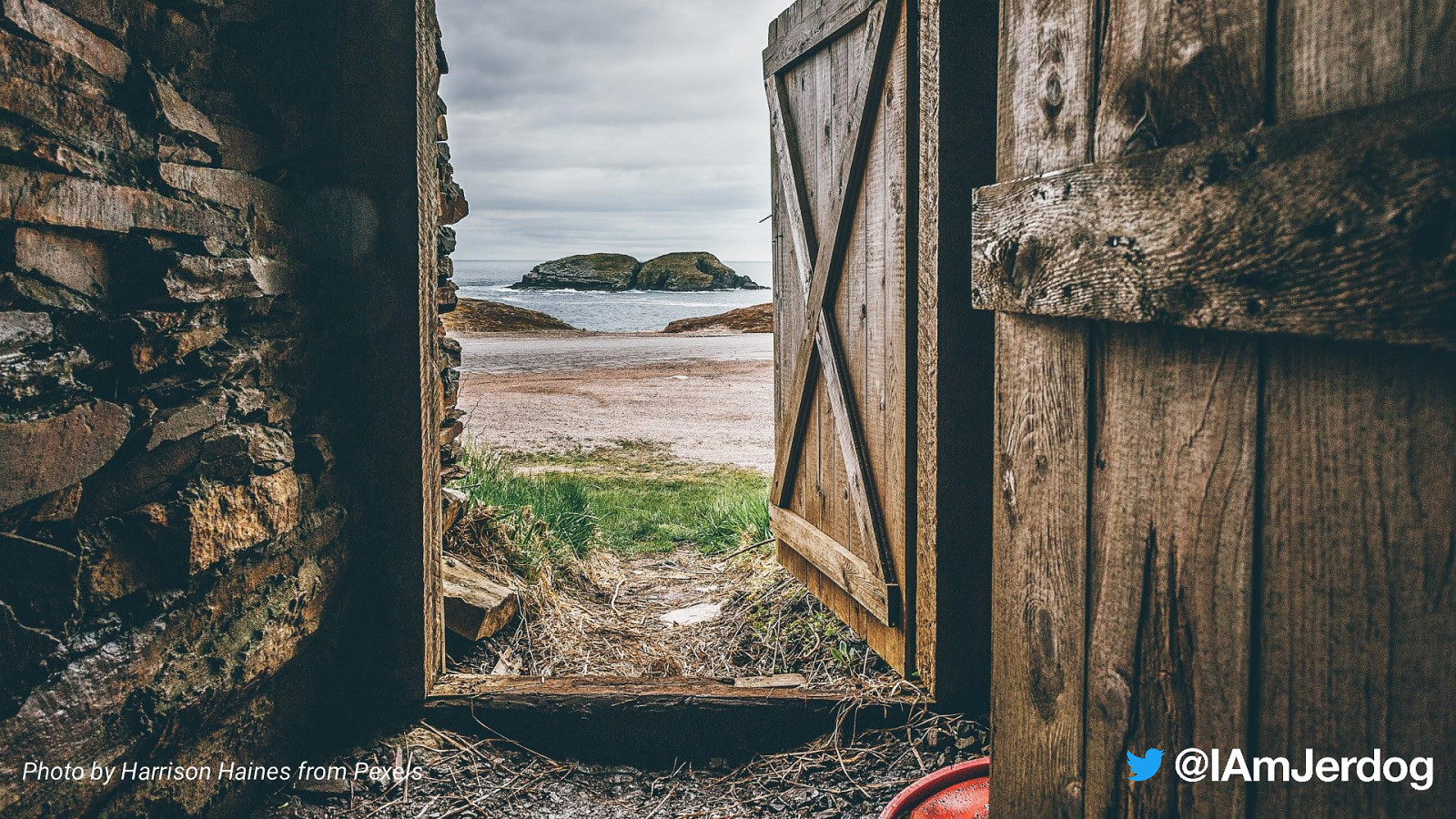
Photo by Harrison Haines from Pexels
Can open doors that previously were not available, thus boosting your community value
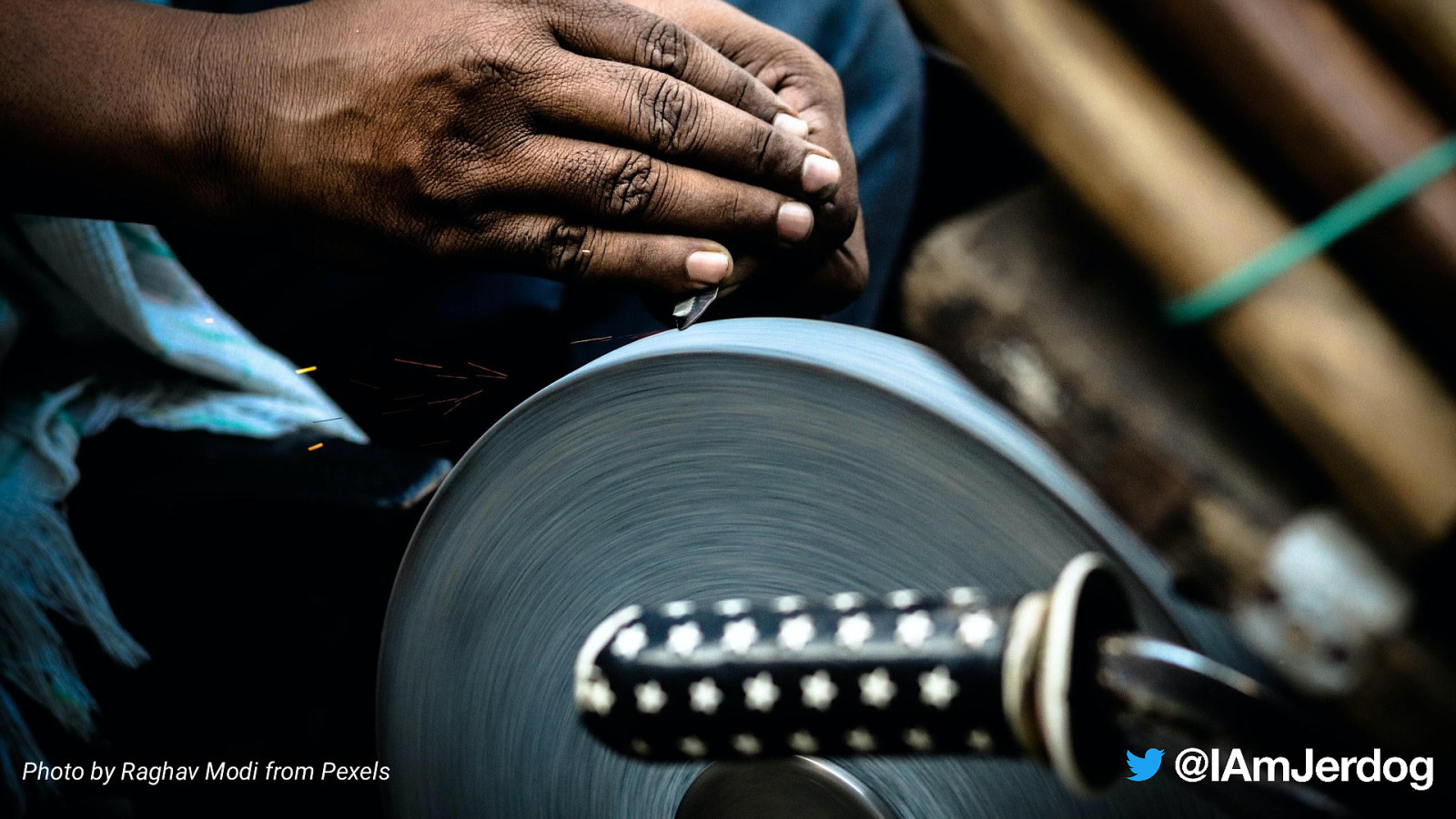
Photo by Raghav Modi from Pexels
Sharpens your skills in building collaborative materials

Photo by Milan Chudoba from Pexels If these aren’t happening, by omission or lack of support from upper management, you’re severely limiting the reach of your community, and you run the very real risk of your community becoming one-dimensional. Once that happens, it will eventually become stale & ROI will be questioned often.
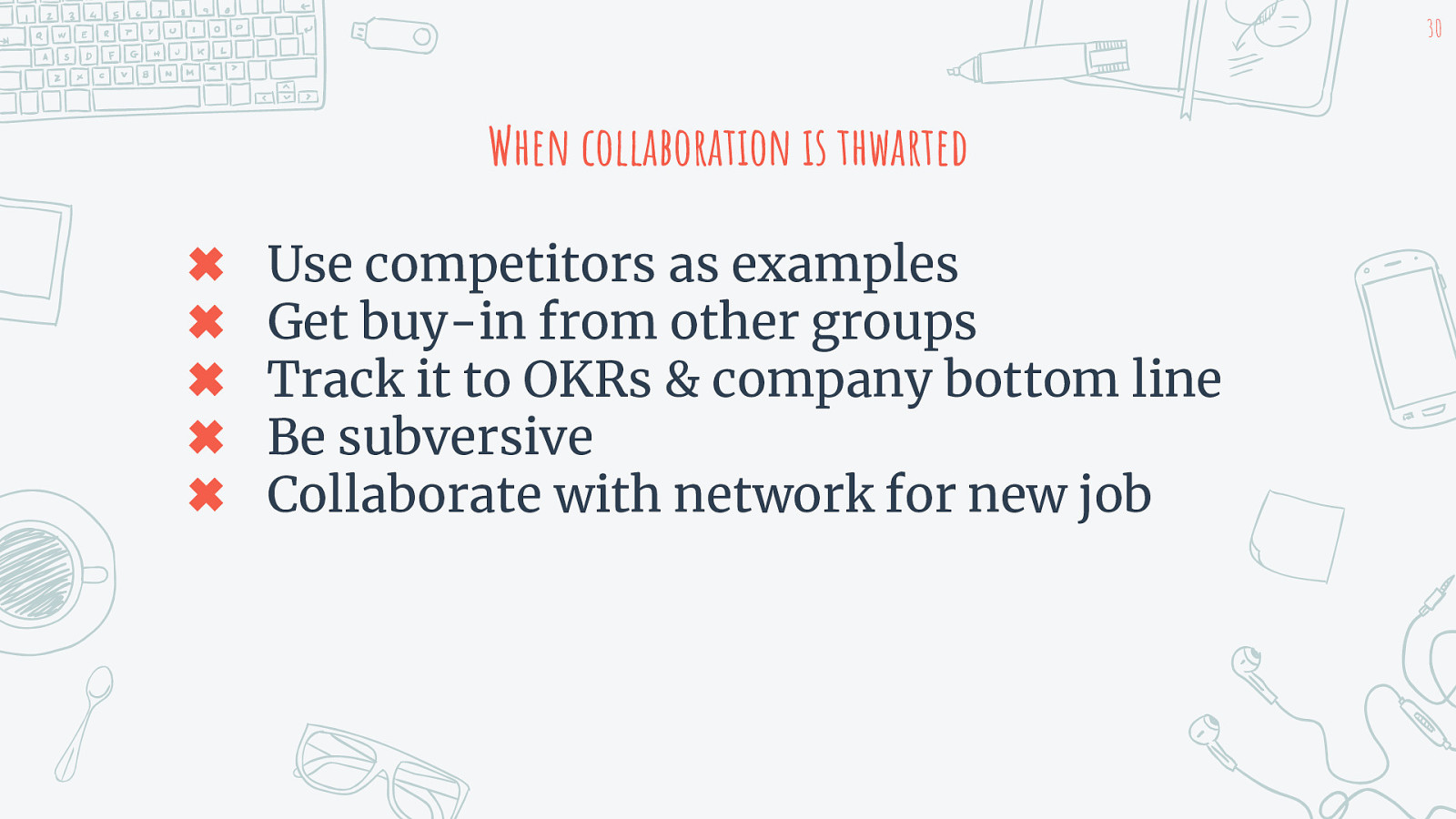
30 When collaboration is thwarted ✖ ✖ ✖ ✖ ✖ Use competitors as examples Get buy-in from other groups Track it to OKRs & company bottom line Be subversive Collaborate with network for new job
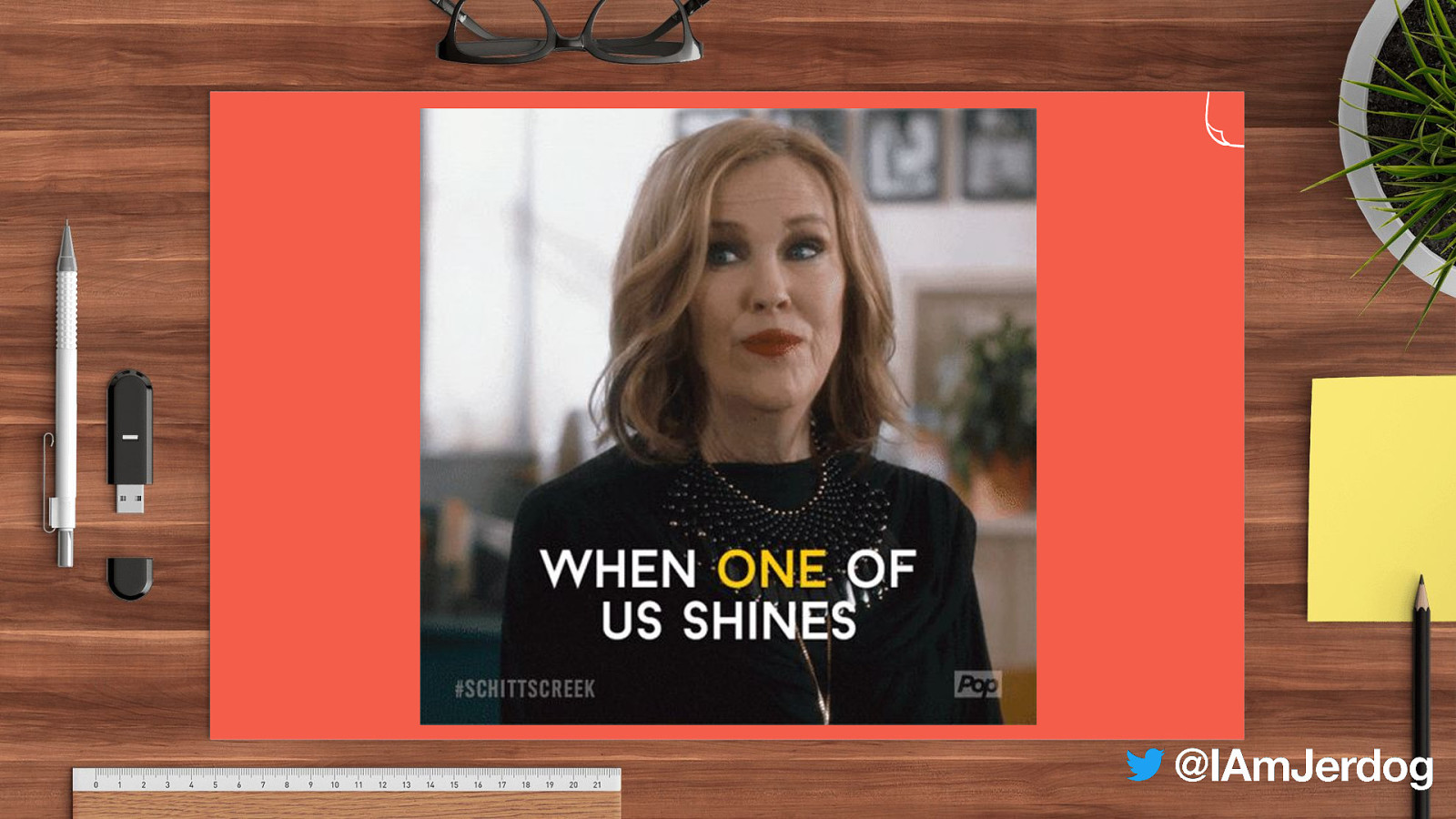
Now one final point I want to make, is that any attempt at collaboration with another company or community MUST be a win/win. You have got to be genuine on this. If you aren’t it will be obvious, and both communities, and the other company or companies, will know and it won’t go well in the industry. Hell, I’d even say that as you begin to do this and look for these opportunities, make sure the other community or company “wins” more than you!
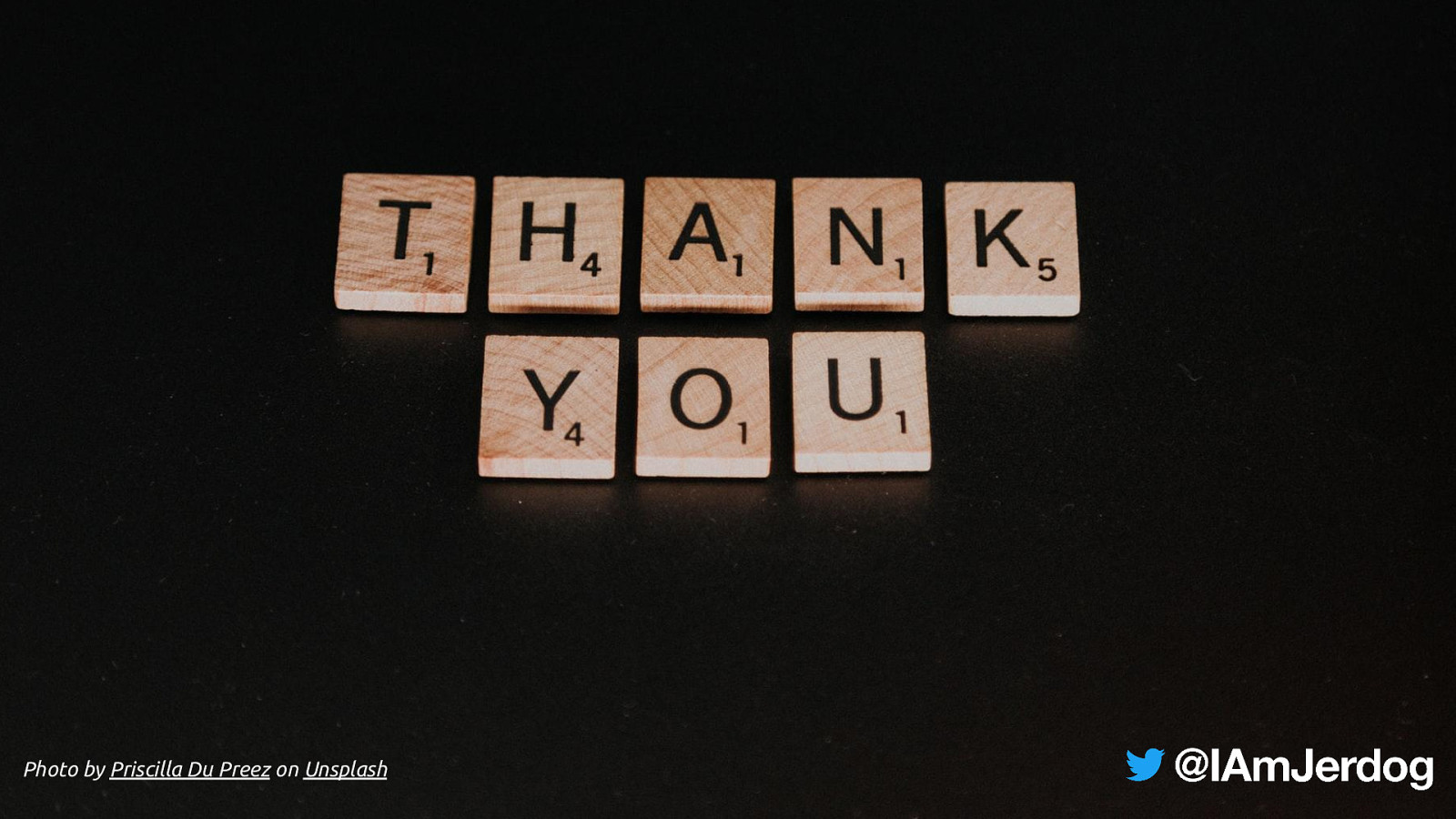
Photo by Priscilla Du Preez on Unsplash
Building developer communities is hard work. It’s long hours of looking at stats, metrics, and worrying about if what you’re building is sustainable or, heck, interesting enough. With all of the hard work, it’s essential to build through collaboration with other communities.
